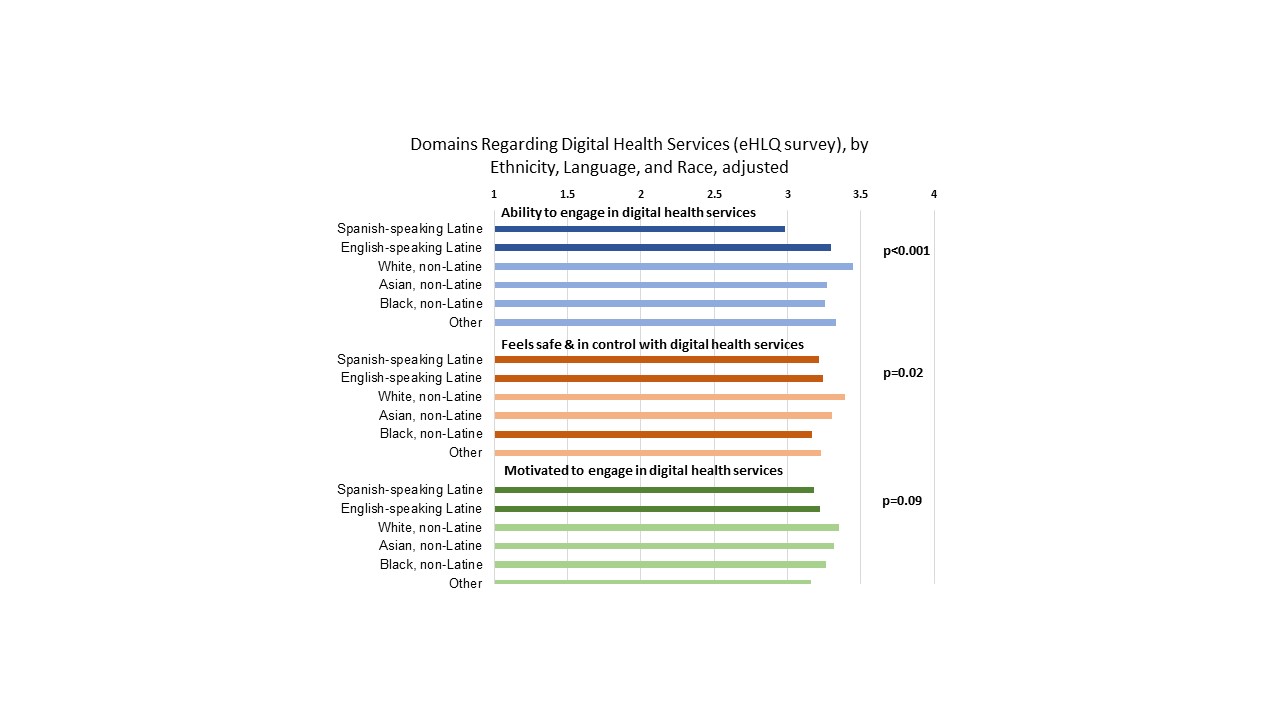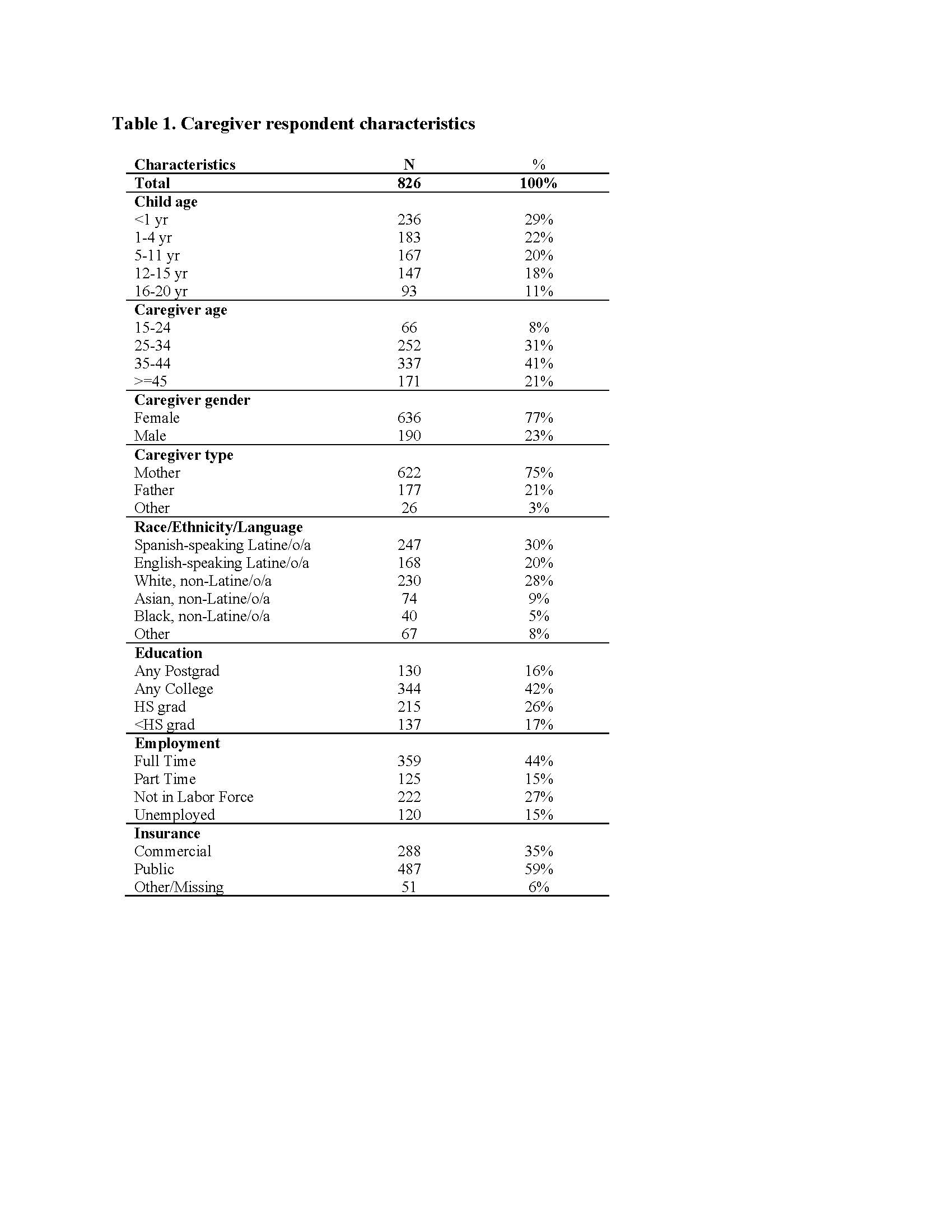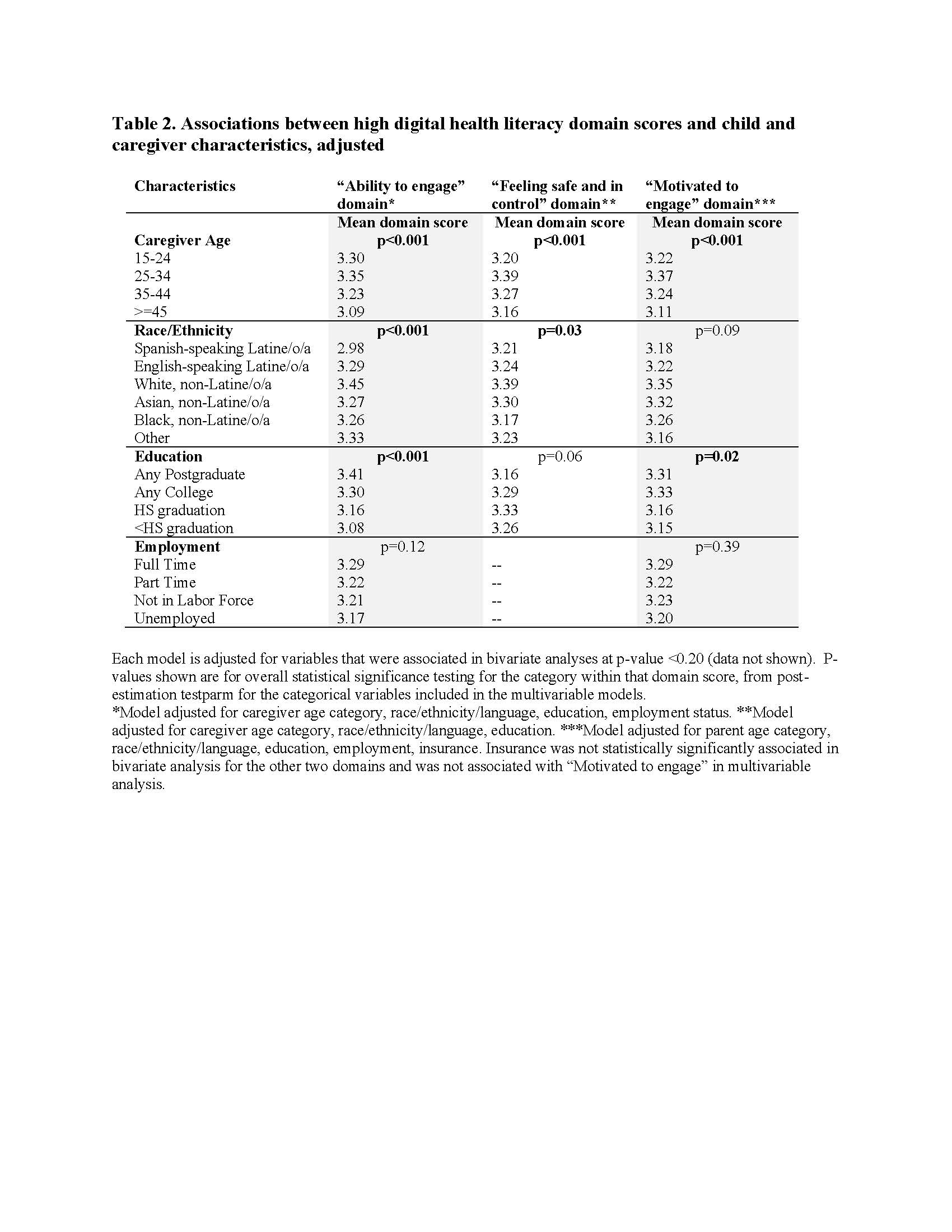Health Equity/Social Determinants of Health
Session: Health Equity/Social Determinants of Health 1
435 - Digital health literacy in pediatric caregivers: Variation by race, ethnicity and language
Friday, May 3, 2024
5:15 PM - 7:15 PM ET
Poster Number: 435
Publication Number: 435.353
Publication Number: 435.353
- LM
Leslie Magana, BA (she/her/hers)
Assistant Clinical Research Coordinator
UCSF Benioff Children's Hospital Oakland
Oakland, California, United States
Presenting Author(s)
Background: Digital health tools can benefit patients but also may deepen existing health inequities for historically marginalized groups due to differential digital literacy and engagement. Little is known about these differences across groups, particularly in pediatric patients and caregivers.
Objective: To assess associations between caregiver digital health literacy and caregiver demographics including race, ethnicity, and language.
Design/Methods: Eligible participants included English- or Spanish-speaking caregivers of pediatric patients 0-20 years in a larger mHealth project, admitted to 2 hospitals (academic & safety-net) 10/2021-3/2023. Participants were surveyed for demographics and in 3 domains of a digital health literacy measure, the eHealth Literacy Questionnaire (eHLQ): “Ability to actively engage with digital services”; “Feel safe and in control with digital services”; and “Motivated to engage with digital services”. Domain scores were a mean of domain item scores (1-4 Likert scale). We tested associations using bi-variate and multivariate linear regression. Multivariate models included co-variates associated with the domain outcome at p< 0.2 in bivariate testing.
Results: 826 caregivers participated (Table 1). In “Ability to actively engage” adjusted analyses, Spanish-speaking Latine/o/a (mean domain score: 2.98) and Black, non- Latine/o/a (mean domain score: 3.26) caregivers had the lowest mean domain scores compared to White, non-Latine/o/a English-speakers (mean domain score: 3.45, p< 0.001, Figure 1); oldest age category (>45 years) and lower education were associated with lower mean scores (Table 2). In “Feel safe and in control” adjusted analyses, Spanish- and English-speaking Latine/o/a, and Black caregivers had the lowest domain scores. In “Motivated to engage” adjusted, race/ethnicity/language was not statistically significant overall (Figure 1); education was associated overall (Table 2). Insurance type was not statistically significantly different in adjusted analyses for any domain.
Conclusion(s): Relationships between domain scores and race, ethnicity, and language showed differences in digital health domains, particularly for Spanish and English-speaking Latine/o/a groups; though relationships differed by domain. This suggests that eHLQ captures meaningful differences between groups and that domains may be separately actionable. Future work to improve these domains of digital health literacy with historically marginalized groups could increase engagement and improve health equity.



